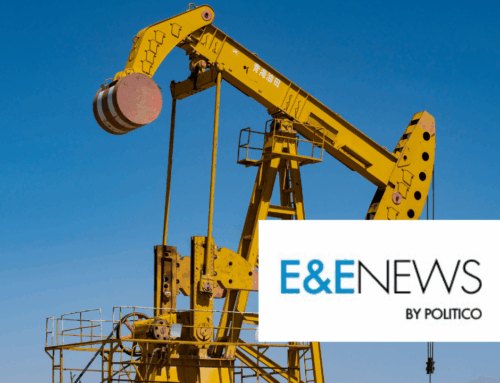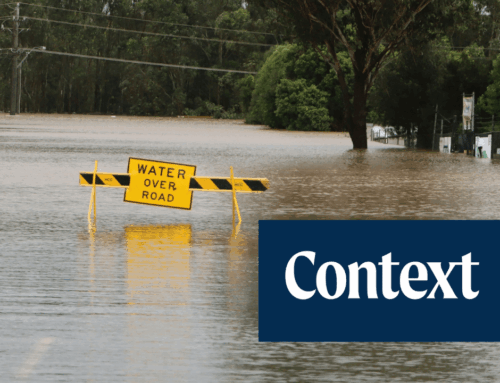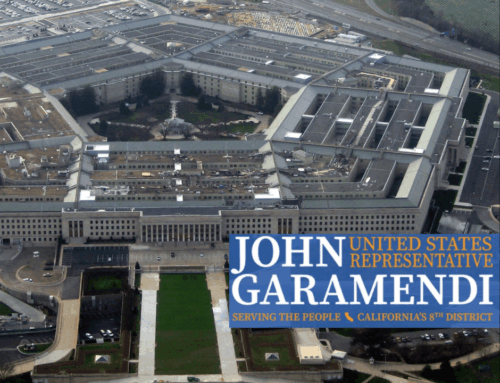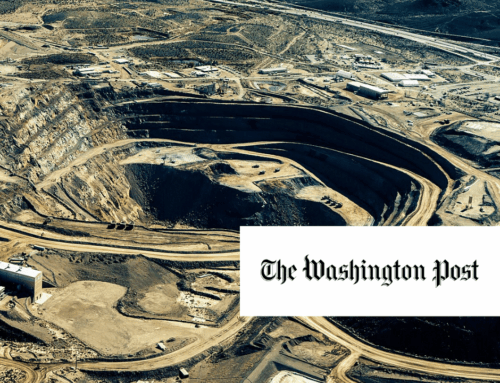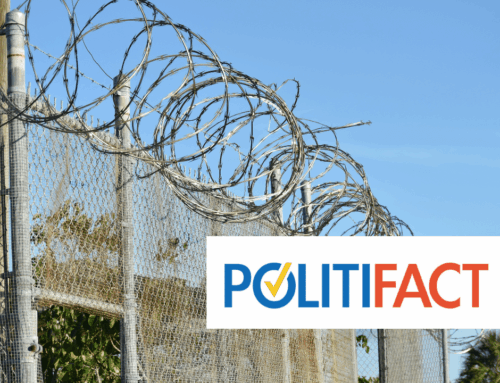The Paycheck Protection Program — a centerpiece in the U.S. government’s response to the economic collapse caused by the coronavirus — is designed to help small businesses that were slammed by the pandemic and ensuing lockdowns. Yet a CBS MoneyWatch review of federal records shows that even businesses whose sales boomed during COVID-19 were also helped by the small business program that features forgivable 1% loans in return for keeping workers employed.
Joseph Stanyer, co-owner of Texas Gun Experience in Grapevine, Texas, in mid-March told a local radio station that his store had seen lines out the door. He noted that sales at the gun retailer had increased fivefold since the pandemic.
Stanyer attributed the sales surge to a growing need for protection given the spread of the coronavirus: “With this scenario we have going on right now, there’s a lot of uncertainty and people just want to know they can protect themselves if they need to,” he said at the time.
As sales soared, Texas Gun Experience in early April got PPP funding of between $350,000 to $1 million, according to information released by the U.S. Small Business Administration, which runs the program.
Earlier this month, the SBA, under pressure from Congress, released the names of companies that got PPP loans of $150,000 or more. But it didn’t disclose the exact amounts, instead giving standard ranges for each company that started at $150,000 to $350,000. The top range for all loan recipients was $5 million to $10 million.
The loan to Texas Gun Experience landed shortly after the Paycheck Protection Program launched — a time many shuttered small businesses were struggling to secure loans. Gun stores in Texas were deemed essential and never forced to close their doors.
Stanyer confirmed to CBS MoneyWatch that his company received a PPP loan, but he said he wasn’t sure for how much. According to the SBA’s data, Texas Gun Experience used the PPP funds to save 52 jobs. “We used the money to bring people back and add more employees —that was the whole point of the program,” Stanyer said.
Congress passed the PPP to help all manner of small employers survive the economic devastation wrought by the pandemic, providing up to $660 billion in low-interest loans. The loans are forgivable as long as most of the money companies got is spent on payroll, rent and other basic business expenses.
At the time of applying for federal assistance, companies had to certify that “current economic uncertainty makes this loan necessary to support the ongoing operations of the borrower,” according to language in the law that created PPP.
Left unclear, by contrast, is whether companies that initially believed in good faith they needed a PPP loan, but that ultimately were not crippled in the downturn, would be required to repay their government-backed loan and how quickly.
“It is absolutely the case that you were supposed to need the loan to get access to the PPP,” said Christopher Austin, a partner at law firm Paul Hastings who has advised companies on their eligibility for the program. “There are some companies that thought in good faith that they would need it and didn’t. But there are other companies that just didn’t think about it before taking the money and should have.”
A CBS MoneyWatch review of companies in industries that both saw a lift from the coronavirus and received PPP loans include cleaning services, debt collectors, gun shops and law firms specializing in corporate bankruptcies.
Many of the companies that CBS MoneyWatch contacted for this story said their businesses struggled early on in the pandemic and that it was not clear they would end up beneficiaries of the shift that COVID-19 has made in the economy. None of the companies is accused of doing anything illegal, it is worth noting.
Meanwhile, business lobbyists and some financial experts have defended the Paycheck Protection Program, saying that, while flawed in how it distributed funds, the PPP did succeed in quickly injecting money into the economy and propping up many thousands if not millions of small businesses.
Still, Treasury Secretary Steven Mnuchin said last week that any future government small business assistance should be more directed toward companies that clearly need the assistance. “I think this time we need to have a revenue test and make sure that money is going to businesses that had significant revenue declines,” he said.
Cleaning up in the coronavirus economy
Goodway Technologies, which is based in Stanford, Connecticut, makes and sells industrial cleaning tools, including a machine that sprays alcohol-infused disinfectant mist to sanitize surfaces. These days, that’s a pretty good business to be in.
Timothy Kane, CEO of Goodway, told Reuters earlier this month that his phone has been ringing off the hook. “Our orders jumped 50-fold in April, it was like a switch got flipped,” Kane said.
Goodway got a PPP loan that same month. On April 15, the company received between $1 million to $2 million from the program, according to SBA records.
Kane told CBS MoneyWatch the company’s core business of manufacturing parts for commercial heating and cooling systems has suffered during the pandemic. Goodway’s overall sales are now flat for the year, but only after dropping steeply in March — before sprayer sales took off, he said.
When the sprayer orders first surged, Kane said, he didn’t have the manufacturing capacity to keep up with demand. The PPP loan helped him transition his business and retrain employees.
Kane said his company would likely have laid off workers in order to weather the transition in its business. He also said he applied for a bank loan without the help of the government and was rejected.
“Goodway is an example of what the Paycheck Protection Program was good for,” Kane said. “It saved jobs.”
Servpro, one of the largest franchisers of cleaning services, is also cleaning up in the coronavirus economy. In mid-May the company launched a COVID 19-specific offering that specifically targets “viral pathogens,” according to a company press release.
Servpro, which is owned by private equity firm Blackstone, expects to generate as much as $300 million in sales from coronavirus-related cleaning this year. According to the SBA data, 28 Servpro franchisees were approved for PPP loans. Most got between $150,000 to $350,000, but some received between $350,000 to $1 million. In all, Servpro franchises mopped up a total of $16.5 million in Paycheck loans.
Servpro spokesperson Kim Brooks said some of its franchisees have applied for loans, under rules allowing individual franchises with fewer than 500 workers to apply, but the company itself did not apply for or receive any government assistance. While the coronavirus has generated opportunities for the company and its franchisees, other parts of its business have flagged, she said.
“Some franchisees did struggle to keep their workers on staff, and the Paycheck Protection Program helped them do that,” Brooks said.
A spokesperson for Blackstone said the private equity firm has no ownership stake in Servpro’s independently owned franchisees that applied for PPP loans. “The Servpro business in which we invested did not apply for or receive any PPP loans,” according to the Blackstone spokesperson.
Debt collectors collected loans
Earlier in the coronavirus shutdown, with banks suspending mortgage, credit card and other loan payments, and waiving late fees, it looked like debt collectors that normally flourish in downturns would see their businesses suffer.
That’s changed. With the coronavirus showing no signs of relenting, and more Americans falling behind on their bills, debt collectors are cashing in. Another bonus for debt firms: Borrowers are likely to be home because of the pandemic, making it easier to reach people who have been unable to pay off loans.
A recent survey of debt collectors from Prodigal Technologies, which makes software for the collections industry, found that more than half of the roughly 7,000 debt collection firms in America “have thrived under COVID-19.” Despite that, the survey of debt collectors in 30 states found roughly 70% of all collection firms applied for a PPP loan — 95% of those that applied were approved.
One debt collector that got substantial assistance from the coronavirus relief program was National Credit Services, based in Bothell, Washington. The collection agency, which does work for the U.S. Department of Education, got between $2 million to $5 million in PPP funds, according to the SBA.
Payments on federally backed student loans are suspended through September, under the Coronavirus Aid, Relief and Economic Security, or CARES, Act passed into law in March. That likely has curtailed business for National Credit Services.
National Credit Services did not return requests for comment.
Armed with cash
Guns sales have spiked since the coronavirus emerged in America earlier this year. A recent study by the Brookings Institution found that consumer concerns about safety — first from shutdowns amid the spread of COVID-19 and then protests around the Black Lives Matter movement —pushed up gun sales 30% in March, April, May and June. The result: 3 million more guns were sold than usual during the period, according to Brookings.
SBA data show that more than three dozen gun retailers around the U.S. got as much as $27 million in total loans from the program. An alert at the top of Budsgunshop.com, a website tied to three gun stores in Kentucky and Tennessee, which received between $350,000 to $1 million in PPP money, warns customers to expect “significant” delays “due to the recent increase in order volume.”
A person who answered the phone at Buds Gun Shop in Lexington, Kentucky, which is located at the address listed in the SBA’s PPP loan-recipient database, said Bud no longer owns the shop and that employees don’t talk to the media over the phone. An email sent through the website was not answered.
Brownells, a popular gun store in Montezuma, Iowa, that also makes its own line of rifles, got between $5 million to $10 million from the small business program. In mid-March, a spokesman for Brownells told the Des Moines Register the store had seen a surge in online ammo sales, particularly from states like New York where coronavirus cases were rising at the time. He also told the newspaper he expected the company to see a spike in sales in Iowa, too, as the pandemic spread and “as Iowans feel the need to protect themselves.”
The Brownells spokesman did not return requests for comment for this story.
A boom in going bust
The virus-induced recession has created a wave of corporate bankruptcies — and a flood of work for lawyers who specialize in that area. In May, Fortune declared bankruptcy attorneys “the hottest job in the downturn.” ZipRecruiter said openings for bankruptcy lawyers have more than tripled since January.
Even so, law firms that specialize in corporate bankruptcy proceedings reached out for Uncle Sam’s assistance to keep employees on their payrolls. The Delaware Business Times found that 56 law firms in the state received more than $150,000 each in PPP funds.
The newspaper noted “Delaware has long had a thriving legal scene, due in no small part to its renowned Court of Chancery and highly trafficked federal bankruptcy court. The industry supports thousands of lawyers in downtown Wilmington.”
Los Angeles-based Pachulski Stang Ziehl & Jones — one of the nation’s biggest law firms focused on bankruptcies — was approved for between $2 million to $5 million in PPP funding on April 10. In recent months, the firm has landed some of the biggest bankruptcy cases, including retailers J. Crew and Neiman Marcus, 24 Hour Fitness, and grocery chain Fairway.
Pachulski Stang did not return requests for comment from CBS MoneyWatch.
“The point of this program was not to ‘helicopter’ cash out to everyone, but to companies that needed it to survive and continue to pay their workers,” said Steve Ellis, who heads the government watchdog organization Taxpayers for Common Sense, which received a $173,000 PPP loan after losing a major donor. “If you are doing well and telling people you are making money hand over fist, then clearly you are not in that situation.”

